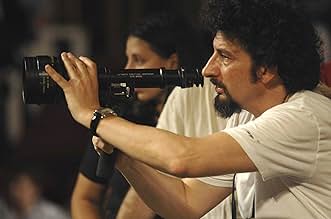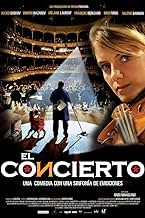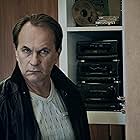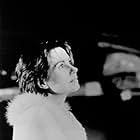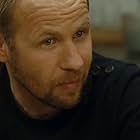Thirty years ago Bolshoi Orchestra conductor Andreï Filipov was fired for hiring Jewish musicians. Now a lowly janitor, an opportunity arises to gather his old musicians to go and pose as th... Read allThirty years ago Bolshoi Orchestra conductor Andreï Filipov was fired for hiring Jewish musicians. Now a lowly janitor, an opportunity arises to gather his old musicians to go and pose as the official Bolshoi orchestra in Paris.Thirty years ago Bolshoi Orchestra conductor Andreï Filipov was fired for hiring Jewish musicians. Now a lowly janitor, an opportunity arises to gather his old musicians to go and pose as the official Bolshoi orchestra in Paris.
- Awards
- 9 wins & 15 nominations
Aleksey Guskov
- Andrey Simonovich Filipov
- (as Aleksei Guskov)
Dmitriy Nazarov
- Aleksandr 'Sasha' Abramovich Grosman
- (as Dimitri Nazarov)
Miou-Miou
- Guylène de La Rivière
- (as Miou Miou)
Valeriy Barinov
- Ivan Gavrilov
- (as Valeri Barinov)
Anna Kamenkova
- Irina Filipova
- (as Anna Kamenkova Pavlova)
Anghel Gheorghe
- Vassili
- (as Anghel Gheorghe dit 'Caliu Din Clejani')
Aleksandr Komissarov
- Viktor Vikich
- (as Alexander Komissarov)
Guillaume Gallienne
- Laudeyrac
- (as Guillaume Gallienne de la Comédie Française)
Storyline
Did you know
- TriviaMelanie Laurent started learning to play the violin only a few months before production. For the concert scenes, she learned all the bow movements, so her bow would always be on the correct string and move convincingly. However, her left hand (and sometimes arm) were digitally added/replaced in post-production.
- GoofsWhen Filipov, Gavrilov, and Grossman are meeting with the man will provide them and the orchestra passports to Paris, he says that when it is evening in Moscow it is morning in Paris. This is impossible because there is only a two hour time difference between the two cities.
- Crazy creditsThe director's father, Ion Mihaileanu, is credited as "diligent and attentive spectator and supporter of the film"
- ConnectionsFeatures Candidate (2002)
- SoundtracksViolin Concerto in D Major op. 35
Composed by Pyotr Ilyich Tchaikovsky (1878)
Performed by The Budapest Symphony Orchestra
(P) 2010 Les Productions Du Tresor / Oi Oi Oi Productions Under Exclusive License To Milan Entertainment, Inc
Featured review
This is the first film of Radu Mihaileanu that really did it to me. It is moving, I resonated with the subject, I laughed when it was funny and I was close to tears when it meant to be emotional. Yet, as his previous films, it is not a masterpiece just a good film to remember. Which is no small matter either.
Mihaileanu's previous films were each of them based on original and different ideas. in each of those the ideas hold above the execution. 'Train de vie' was one of the first films to deal with Holocaust from a comic perspective, and maybe the most interesting idea of all, better even as Begnini's maybe. 'Les pygmees de Carlo' dealt with the communication between cultures in an unusual way. 'Vas, viens, et deviens' is the only movie until now to deal with the Ethiopian immigration to Israel. Here, in 'Le Concert' two main ideas dominate the action. One is about the new culture of vulgarity and mediocrity that dominates the life after the fall of the Communism. The main hero (wonderfully acted by Aleksei Gluskov) is a great conductor. His life and career were broken during the Communist rule for having opposed the regime of Brezhnev. Yet, the change of the social order did not put him back in place, as the collaborators of the old regime and the new oligarchs took the place of the rulers, siding the real values. The second idea is that music redeems, transcends politics, and is worth any risks and sacrifices.
'Le Concert' is correspondingly divided into two parts. The first one is a brilliant comedy, one of the best that I have seen lately. It is based on stereotypes one may argue, the stereotype of the Russians and French, of the Jews and Gypsies, of musicians and impresarios, Communists and oligarchs, but in these case they work, and the result is true and funny. The Russian orchestra of former musicians, sided away by the new times makes it to Paris under the label of the Bolshoi to give the concert of their lives, the proof that Tchaikovsky, and Russian music, and value are still there despite all. Then the second part begins, the one in which all becomes personal, Then the second part begins, the one in which all becomes personal, with a seemingly love story which turns to be something completely different, a much more dramatic story in which music is not only revenge but also personal redemption, is not only survival but also coming from beyond the graves of a tragic history.
This is were the strength and the weakness of Radu Mihaileanu's art meet. All the film converges to the final scene, the one of the concert in Paris, we know it from the beginning. All the explanation will be present in that scene, and this is the bet and the risk of any music film in the history of cinema. The result is only a partial win. Tchaikovsky's Concerto for Violin provides the appropriate background, and the emotional result is immediate. The doubts start after the screening ends. The situation is certainly less than credible, from an intrigue and musical point of view. Mihaileanu's execution is too direct, he plays too much on short term emotions, tears are too apparent. He has huge ideas, and one day he may turn them into one or more great movies. 'Le Concert' is too explicit, it lacks the patience and the sophistication to be that one .
Mihaileanu's previous films were each of them based on original and different ideas. in each of those the ideas hold above the execution. 'Train de vie' was one of the first films to deal with Holocaust from a comic perspective, and maybe the most interesting idea of all, better even as Begnini's maybe. 'Les pygmees de Carlo' dealt with the communication between cultures in an unusual way. 'Vas, viens, et deviens' is the only movie until now to deal with the Ethiopian immigration to Israel. Here, in 'Le Concert' two main ideas dominate the action. One is about the new culture of vulgarity and mediocrity that dominates the life after the fall of the Communism. The main hero (wonderfully acted by Aleksei Gluskov) is a great conductor. His life and career were broken during the Communist rule for having opposed the regime of Brezhnev. Yet, the change of the social order did not put him back in place, as the collaborators of the old regime and the new oligarchs took the place of the rulers, siding the real values. The second idea is that music redeems, transcends politics, and is worth any risks and sacrifices.
'Le Concert' is correspondingly divided into two parts. The first one is a brilliant comedy, one of the best that I have seen lately. It is based on stereotypes one may argue, the stereotype of the Russians and French, of the Jews and Gypsies, of musicians and impresarios, Communists and oligarchs, but in these case they work, and the result is true and funny. The Russian orchestra of former musicians, sided away by the new times makes it to Paris under the label of the Bolshoi to give the concert of their lives, the proof that Tchaikovsky, and Russian music, and value are still there despite all. Then the second part begins, the one in which all becomes personal, Then the second part begins, the one in which all becomes personal, with a seemingly love story which turns to be something completely different, a much more dramatic story in which music is not only revenge but also personal redemption, is not only survival but also coming from beyond the graves of a tragic history.
This is were the strength and the weakness of Radu Mihaileanu's art meet. All the film converges to the final scene, the one of the concert in Paris, we know it from the beginning. All the explanation will be present in that scene, and this is the bet and the risk of any music film in the history of cinema. The result is only a partial win. Tchaikovsky's Concerto for Violin provides the appropriate background, and the emotional result is immediate. The doubts start after the screening ends. The situation is certainly less than credible, from an intrigue and musical point of view. Mihaileanu's execution is too direct, he plays too much on short term emotions, tears are too apparent. He has huge ideas, and one day he may turn them into one or more great movies. 'Le Concert' is too explicit, it lacks the patience and the sophistication to be that one .
- How long is The Concert?Powered by Alexa
Details
Box office
- Gross US & Canada
- $657,986
- Opening weekend US & Canada
- $21,742
- Aug 1, 2010
- Gross worldwide
- $41,146,351
- Runtime1 hour 59 minutes
- Color
- Sound mix
- Aspect ratio
- 2.35 : 1
- 2.39 : 1
Contribute to this page
Suggest an edit or add missing content





